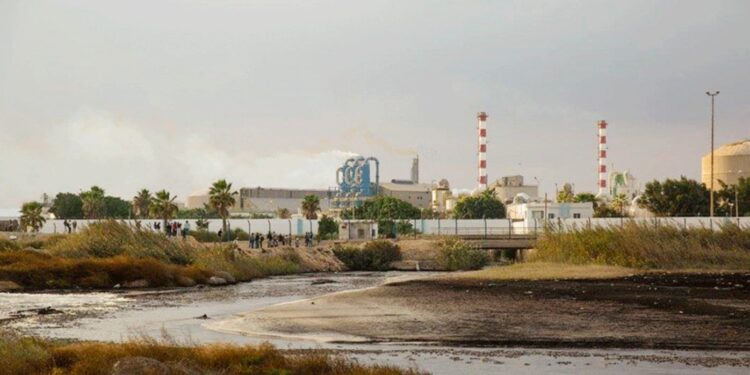Yesterday, President Kaïs Saïed spoke about Gabès’s environmental situation againcalling for “protecting the region’s population and ecosystem from the destructive effects of industrial pollution”. His remarks come when the local protest does not weaken in the face of a problem which has become emblematic of the Tunisian dilemma: reconciling economic development and environmental protection.
The drama of Gabès found its roots in the 1970s, when the Tunisian chemical group (GCT) installed its industrial complex by the sea. The factory, intended to transform phosphate into phosphoric acid and fertilizer, generates colossal waste: the phosphogypse. For almost half a century, millions of tonnes of this toxic residue have been poured into the Gulf of Gabès, resulting in massive marine pollution.
Over the decades, the sea has lost a large part of its biodiversity: disappearance of posidonia herbaries, collapse of fishery stocks and deaths of formerly abundant marine species.
This ecological degradation has a direct impact on the inhabitants. The fishermen, historic economic pillar of Gabès, see their resources collapse. Several families abandon a profession transmitted from generation to generation.
Added to this are health worries: respiratory diseases, irritation, and suspected of cancer. Even if the authorities are cautious about causality, the population lives in a climate of mistrust and permanent fear.
Between employment and environment
The chemical complex remains one of the largest employers in the region. Thousands of families depend on its wages, which partly explains the difficulty in imposing a radical rupture. Central power is faced with a dilemma: move or modernize the factory at great cost, or maintain an activity that suffocates the oasis and the sea but ensures immediate income.
This duality is at the heart of social anger: the population of Gabès denounces an “environmental injustice”, believing to pay the ecological price of an economic development which benefits the rest of the country.
Since the 1990s, associations, collective citizens and NGOs alert. The movement “Stop pollution”born after the 2011 revolution, gave new voice to civil society. But despite government promises and successive depollution plans, few concrete measures have emerged.
The projects to travel from industrial units outside the urban area are regularly announced … then postponed. The inhabitants accuse the authorities of delaying in the name of the financial balances and the power of the phosphate lobby.
A debate that goes beyond Gabès
In reality, Gabès’ situation illustrates a national contradiction. Tunisia, strongly dependent on the phosphate sector, struggles to reinvent its industrial model. In a context of acute economic crisis, the transition to a green economy remains a distant horizon, even if political discourses, like that of Kaïs Saïed, recall the urgency of protecting populations.
The city of Gabès embodies this impossible choice: preserving phosphate jobs or saving an ecosystem and future generations. A dilemma that yesterday’s presidential recall brutally gives the center of the public debate.








